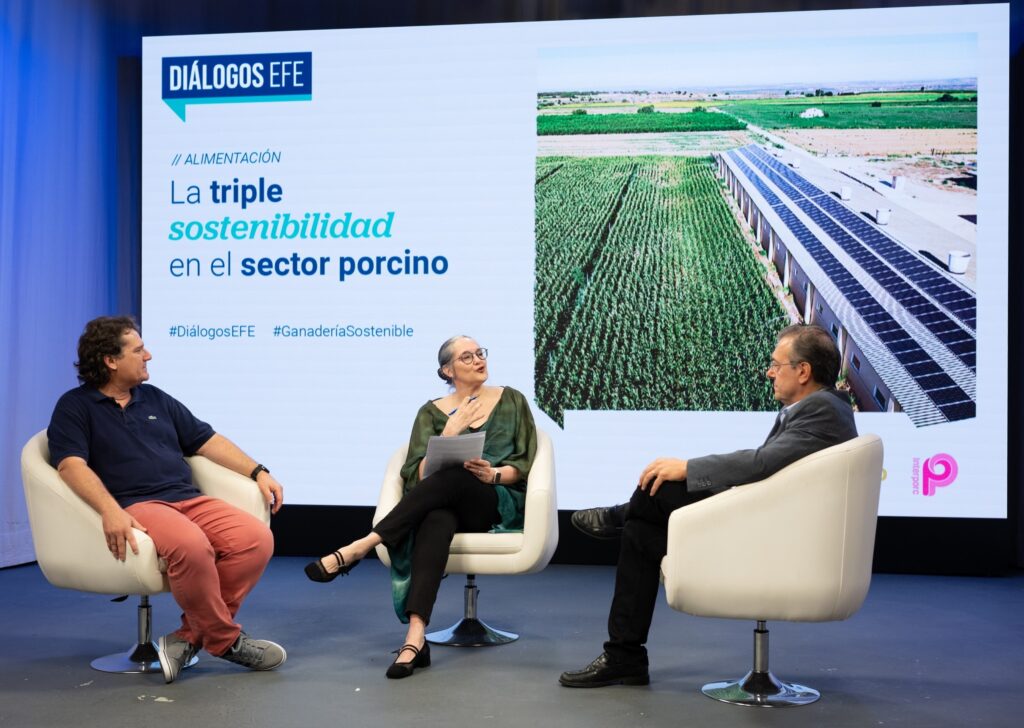“In sustainability, in the white-layered pork sector in Spain we are moving towards circularity and the word waste ceases to exist.” This has been indicated by José Miguel Mulet, researcher, writer and scientific disseminator, who has participated together with Juan Pascual, vice president of France, Iberia and Italy at Elanco Animal Health, in the EFE Dialogues, organized by the Interprofessional Agri-Food Organization of Pork of Capa Blanca (INTERPORC).

During the meeting, both experts agreed to point out that livestock farming in general is “very important, although it may not seem like it or it is not popular, for the ecological balance and health of all, as stated by more than 14 prestigious medical associations.” of all the world”.
It’s a fashion
Regarding the demonization that the meat sector is suffering, they recalled that “it is above all a fashion because if you look at the consumption figures, it doesn’t seem like it’s that big of a deal. “It’s more about what you talk about than what you don’t eat.” And what is not understood, Mulet pointed out, is that “we demonize a sector, which is key to producing quality protein and establishing the rural population, with all the demographic problem.”
For Pascual: “The sector must invest in communication towards politicians and towards society and try to put an end to messages that are not true, from the school, for example, fighting to eliminate references from textbooks against livestock farming”.
Along the same lines, Pascual has expressed himself, who has explained that in Spain, from the production plants of the farms to the delicatessens, there are many thousands of people who develop a sector “that is fundamental for the economy and who also make a contribution very important to society, on the one hand because we criticize so much that there is no support for the emptied Spain, a large part of those people work in the emptied Spain, and on the other hand, they are bringing fundamental nutrients to society.”
B12 vitamin
Focusing more on the population’s diet, Mulet has stated that “we need high-quality protein, vitamin B12 and a lot of nutrients that are very difficult to obtain with alternatives to meat consumption, and sometimes even more expensive to produce. Eating meat, in principle, is good for health, its inclusion is part of a balanced and healthy diet, much easier to follow than a diet without meat.”
In fact, Pascual pointed out, “we have never eaten so healthy, it is not true that meat has antibiotics and other things that are said. “Each of us can do a lot, we have to do it on a daily basis by giving real messages based on science.”
Rebut with truth and science
For both experts, the challenge of the meat livestock sector is to communicate. For Mulet: “The meat sector has to refute all false information, because the reputational mortgage can be very high and it is easy to refute with the truth all the messages that are false.”
For Pascual: “The sector must invest in communication towards politicians and towards society and try to put an end to messages that are not true, from the school, for example, fighting to eliminate references from textbooks against livestock farming”.
















